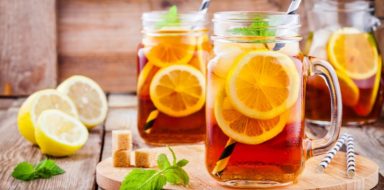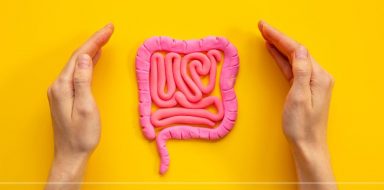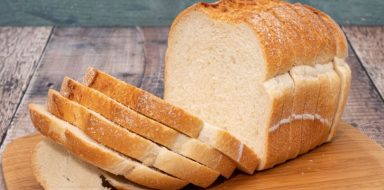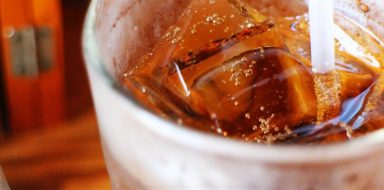What Triggers OAB?
Overactive bladder (OAB) is a common disorder that stems from a variety of causes. Products like Comfort Medical and PureWick can help. But what triggers OAB?
9 Foods That Can Trigger OAB
Let's take a look at what triggers OAB.
1. Alcohol and Caffeine
Both alcoholic and caffeinated drinks are diuretics, which means they encourage your kidneys to produce urine and will stimulate your bladder to empty more frequently. It goes without saying that heavy drinking and constant coffee consumption are off-limits, but even small amounts of either type of beverage can spell trouble for OAB sufferers.
Cutting back to 100 milligrams of caffeine per day (one small cup of coffee) can help a lot, but you might find that you need to eliminate alcohol altogether if it is bugging your bladder too much. In any case, get out of the habit of drinking booze at night; even one drink before bed can make nighttime urination worse.
2. Spicy Dishes
That plate of hot wings may seem harmless enough but don’t be fooled. Spicy foods like hot peppers, horseradish and curry that make your mouth burn can irritate your bladder as much as your mouth. The irritating compounds can aggravate your bladder lining and worsen your urge to go.
It can be difficult to give up the spice, especially if you have developed a taste for the lingering heat, but you can replace it with other flavorful ingredients. Herbs should be your new ally in the kitchen since they are as healthy (and gentle) as they are tasty.
3. Acidic Foods
The natural acid in certain foods can irritate the nerves in your bladder, so it is best to avoid citrus, tomatoes and many berries in order to reduce bladder spasms.
Cranberries are particularly problematic. Since cranberry juice is traditionally used to fight off urinary tract infections (UTIs), many people assume it is generally good for bladder function. However, it can be a real irritant and altogether unhelpful if you are struggling with OAB rather than an infection. The diuretic action — which is helpful for urinary tract infections — will make you go to the bathroom more often.
4. Sweeteners
Sugar can mess with a variety of processes in your body, including your bladder function, and artificial sweeteners are just as bad as the natural variety. Some research suggests that honey, fructose and other natural sugary additives can aggravate the bladder muscle, while artificial sweeteners like Splenda worsen urge incontinence.
Some people find eating foods with gluten (namely, grains like wheat, rye and barley) also make their OAB symptoms flare, which can point to gluten sensitivity or allergy. Although the stomach and intestines are more frequently the site of gluten-related problems, it is not uncommon to notice symptoms like urge incontinence and frequent urination too.
Did you know that OAB and constipation can be related? While they are different conditions, they can play off each other to worsen symptoms.
5. Giving in to the Urination Urge Too Soon
A big part of building and training your bladder is teaching your body to hold urine until you find an appropriate time to visit the toilet. This means that while it can be pretty uncomfortable at first, forcing yourself to hold it can help to rewire your nerves and muscles to ease OAB symptoms.
When you practice holding your urine, you strengthen your pelvic floor muscles — the strong band of muscle at the base of your pelvis. The stronger these muscles, the more control you will have over leakage and the urge to urinate. The key is to make a schedule for visiting the bathroom, gradually extending the time between visits by a few minutes until your bladder learns to relax and stay sealed.
6. Drinking Less Liquid
Since drinking a lot of liquid will surely make you use the washroom more often, the obvious solution is to drink less liquid. This preventative measure can backfire, since the less you drink, the more concentrated your urine will become, and the more concentrated your urine, the more it will irritate the lining of your bladder.
In the worst cases, cutting back on fluids will lead to constipation, kidney stones and bladder infections. You’ll want to find the right level of hydration for you, which might take some trial and error, but experts suggest it is around 8 to 10 glasses of water per day for people at a healthy weight.
7. Antidepressants
Some antidepressants can interfere with your bladder’s ability to empty itself completely, and that can lead to more leakage and more nighttime trips to the bathroom.
Did your OAB start after you began taking antidepressants? The medication might be at the root of your bladder issues.
8. High Blood Pressure Medication
High blood pressure can call for medical action, and often the best solution is a diuretic to drain extra fluid in your body so your heart can work more efficiently. As you experience diuresis — where your kidneys produce more urine more often — your urge to urinate will be much more intense. However, it is crucial you talk to your doctor before you stop taking high blood pressure medication, even if OAB symptoms complicate matters.
9. Sleeping Pills
Your sleeping aid could be triggering nighttime incontinence, which is sure to cause more stress in the morning. Common medications used to lull your brain into a deep sleep can, directly and indirectly, interfere with your natural bladder response. First, you may sleep so deeply that the urge to urinate won’t wake you up, and second, the drugs can relax the urethral sphincter to let the urine pass through.
Long-term use of sleeping pills is generally not a good idea anyway, so turn your attention to improving your sleep naturally rather than knocking yourself out with medication. Sleep hygiene is important, but your stress level, activity level and diet can have a huge impact on the quality of your sleep too. Take a closer look at how you might be able to help your brain switch off at night without the help of medication.
Comfort Medical vs. PureWick
Comfort Medical provides catheters inserted into the urethra to manage urinary incontinence internally, whereas PureWick offers an external catheter solution using an absorbent wick for non-invasive urine collection.
Pay Close Attention to Everything
Everything that goes into your body can affect your bladder. Although stress and physical trauma do play roles in some cases of OAB, what you eat, drink and otherwise consume are more common bladder irritants.
The chronic symptoms can disrupt your routine, and while OAB isn’t your fault, your daily decisions might be making it much more difficult to live with than it needs to be.
All sorts of everyday habits, obligations and indulgences can interfere with your bladder health, so you will need to keep a close eye on the little things that could be making big problems.
Get used to reading labels to avoid troublesome ingredients (for instance, a lot of everyday headache medicines include caffeine), and consider using an elimination diet to pinpoint bladder irritants that may be hiding in your weekly menu. Finally, don’t give up on your physiotherapy — strengthening your pelvic muscles is just as important as giving up bad dietary habits for the good of your bladder.







